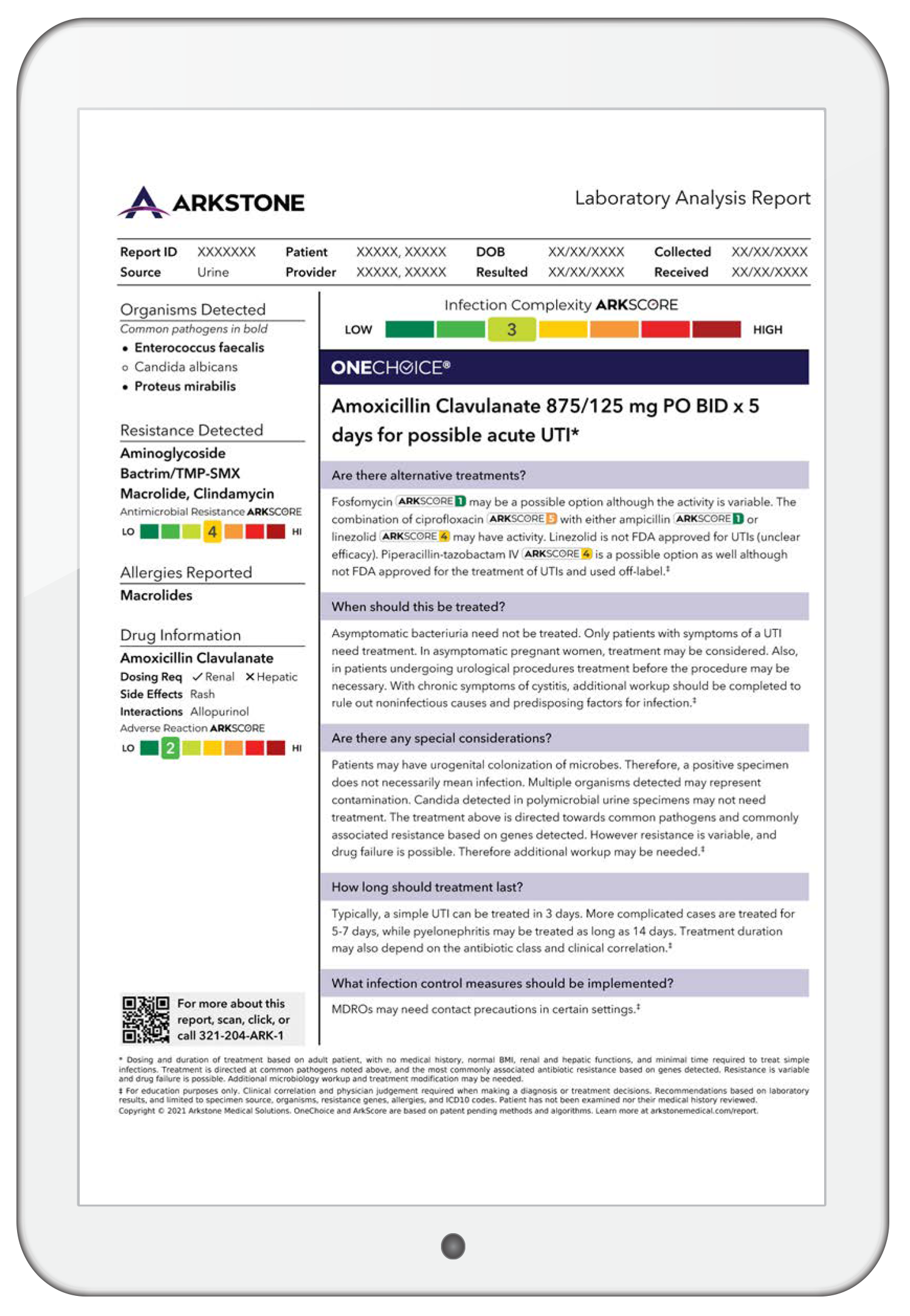SERVICES
Antibiotic Resistance
Antibiotic overprescription has lead to a rise in antimicrobial resistance, posing a clear and present danger to modern medicine and worldwide health. We strive to empower our cients with tools to make informed medical decisions and reduce that threat.
Antimicrobial Resistance Poses a Global Health Threat
Worldwide Annual Deaths Due to Antimicrobial Resistance
of Outpatient Antibiotic Prescriptions Are Unnecessary or Inappropriate
Estimated Additional Cost to U.S. Healthcare System Each Year
We actively engage in partnerships and research initiatives to better understand antibiotic resistance. By collaborating with medical professionals, academic institutions, and industry partners, our goal is to empower individuals, healthcare providers, and organizations with the knowledge and resources needed to make informed decisions about antibiotic use and infection prevention methods to reduce the threat of antibiotic resistance. Together, we can work towards preserving the effectiveness of antibiotics for future generations and ensuring the continued success of modern medicine.
Our antibiotic resistance service is designed to address the challenges posed by over prescription and the need for customized antibiotic dosing. By leveraging advanced diagnostic techniques, we offer several clinical advantages that can significantly impact patient care and outcomes.
Clinical Advantages:
By utilizing our antibiotic resistance service, healthcare providers can enhance their ability to make informed treatment decisions, optimize antibiotic use, and mitigate the risks associated with over-prescription. Ultimately, this leads to improved patient care, reduced hospitalizations, and better overall health outcomes.

We Include Arkstone Report for Every Client at No Additional Cost
Every Arkstone report includes Antimicrobial Resistance ArkScore that measures levels of antimicrobial resistance expressed in the detected organisms. Lower scores denote low resistance, in which case the antibiotic of choice can be given with less concern about adverse outcomes. A higher score indicates higher levels of resistance, limiting the antibiotic options available, increasing risk to the patient.
